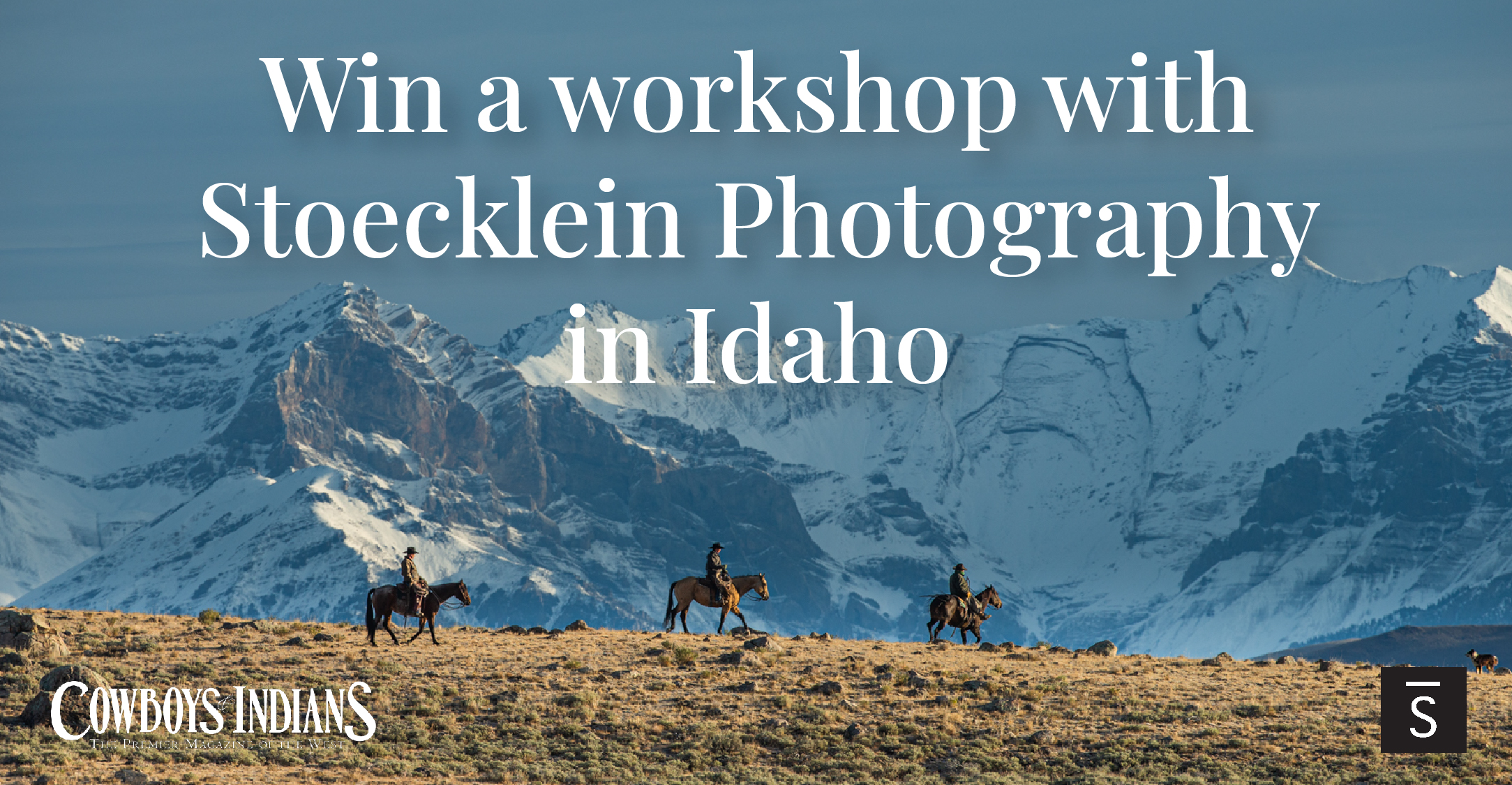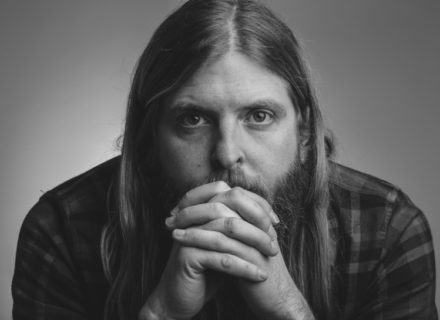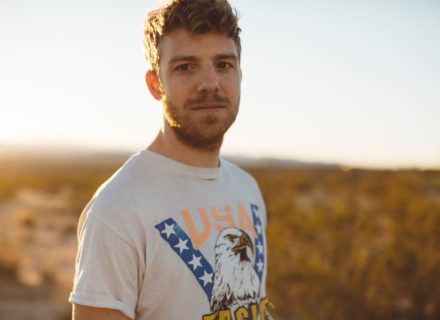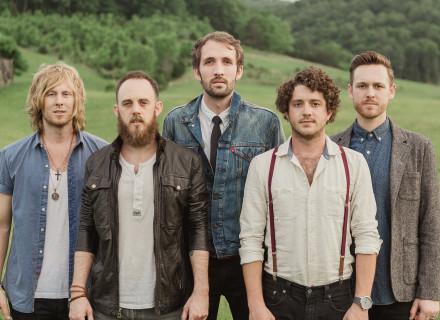Country-rock crooner JP Harris talks about his latest album, Sometimes Dogs Bark at Nothing, available now.
JP Harris drew on his adventurous upbringing for his new solo country-rock album, Sometimes Dogs Bark at Nothing. Even while unconventionally tackling powerful topics such as gender imbalance in the music industry, Harris’ personal struggle with alcoholism, and the darker days of touring with his band, the Tough Choices, this thoughtful album also manages at times to be funny.
Recently we talked Harris about his music and, among other things, traveling by train.
Cowboys & Indians: You recently released Sometimes Dogs Bark at Nothing. What do you hope your fans will get out of the new record?
J.P. Harris: Lord, I don’t know. I hope everybody can find something for themselves in it. … [I’m] a songwriter who writes things that are very personal — songs that are stories of my own life, but can be angled or positioned to be a little more identifiable to anybody else. You spend this time being real precious about them and making them just right, recording them just the way you want them, and then you have this scary moment where it’s like your little chick’s flying away from the nest, where you realize that once you release a song that you’ve written, it’s kind of not really your song anymore.
You sort of take on this responsibility of supporting other people’s emotions in this interesting way. I think that people identify with the story of the song, even more than the melody. The instrumentation itself is probably the most important part of any record for me or any recording I do at all. I just hope that everybody that listens to the records will find a little something in it for themselves. Music is supposed to be its own form of medicine or drug, whichever way you want to look at it, and I hope everybody gets a little dose of one or both for themselves on a personal level from something that record.
C&I: I’ve never heard anyone say that when they release a song it’s not actually theirs anymore and I really like the idea that a singer/songwriter becomes a spokesperson for anyone that relates to their song. …
Harris: Yeah, exactly. It’s almost, like I say, you adopt this sort of responsibility to your fans that listen to you because you’ve maybe touched on a sore subject or brought a little slice of joy into their life and then it’s kind of your responsibility to play that little piece of their life live for them. That’s what they spend their hard-earned money and time to do, to come out to see you play or buy your records on the Internet or whatever and it’s almost like your duty.
It’s funny, because there’s a lot of songs, obviously, from necessity of the fact that I don’t play a three-hour show every night, but also there’s songs of mine from my first two records that I don’t really play anymore, for various reasons. Maybe I grew out of them a little bit. Maybe it’s a subject that I don’t really feel like touching on anymore. [When] people request a song that isn’t really in my set anymore at a show, I get the strange sense of guilt like, “Oh, man. I owed you this,” you know? … It’s like I feel like I let somebody down with something that I promised to them, you know? So it’s an interesting way to look at your own music. And from my perspective of writing songs from a firsthand experience point of view, it can help you sort of detach a little bit. Because it can be really hard to relive all those stories every night, night after night after night, you know?
C&I: I really love the title Sometimes Dogs Bark at Nothing. What’s the story behind it?
Harris: It’s interesting, actually, because as much as I would love to take full credit for the title of the record, I cannot. It’s a small piece of the song, but the only song I’ve every co-written, technically, is that song. And it actually wasn’t even really a co-write. … My dear old friend Tim Findlen — a really, really good friend of mine, awesome musician, played in my band off and on for years, and we’re still super close — he kind of writes more tongue-in-cheek, sarcastic, kind of fake country songs. He’s a funny, punny kind of guy. He and I are sort of the yin and the yang of country music in our own hilarious ways.
We were driving along somewhere and were at a stoplight in a neighborhood and there was just some dog standing in a yard just barking, obviously at nothing at all. Tim just looked over at me and said, “Man, you know, sometimes dogs just bark at nothing.” And I was like, “Huh. You know, that’s a really good point.” Fast-forward a few months and that line just stuck in my head. Then, kind of out of nowhere, after mulling it over, it struck me as this really poignant comparison to so many other things in life, things that are just very simple but they still don’t make any sense. … And there’s some things in the natural world and then some things in the human condition that you can try to overexplain, but what they really chalk up to is just unexplainable.
That comparison between the strange behaviors of animals and the world around us that we see and then comparing that to the strange behaviors of humans and things that we, as humans, do that don’t make any sense — it just really struck me.
C&I: Who else or what else were some key influences on the record?
Harris: That’s an interesting question because years ago, I don’t know, a decade ago when I started writing songs — this coming spring it’ll be the 10-year anniversary of the first time I played a show playing my own music as JP Harris and the Tough Choices — I remember being so excited when I got my first interview, ever, and of course I had a lot of influences to reference: Johnny Paycheck and George Jones and Merle Haggard — sort of all the classics. Del Reeves and Waylon Jennings. And then I kind of realized that it was almost pointless for me to sit down and try to describe every little influence that played into every song.
I learned to sing country music singing along with tapes of the Carter Family. That was how I started to really get a grip on country harmony, country melody, and singing old, old Appalachian ballads. And then I just took in a whole range of different influences over the years.
I think as I’ve gotten older, more skilled, and more comfortable and confident with my own signing and my own songwriting, I have sort of eschewed those molds a little more. … But it’s really, I think, this record more than anything I’ve done before — it just kind of feels like my own music. … I feel a little more grow-up and a little more like myself. I’ve spent 10 years figuring out what JP Harris actually sounds like and writes like, and I finally put out a record that actually feels 100 percent like me.
C&I: For this album you took a different approach to the producing process. Tell me more about that and the overall recording process.
Harris: It’s the first time I’ve actually had a producer, formally, on a record. I produced my first two releases with help from the engineer. I can’t claim 100 percent responsibility for the production on the first two records. But ,yeah, my buddy Morgan Jahnig, who’s a lifelong member of Old Crow Medicine Show, is the producer on this record. We come from a very similar musical background and approach to music. …
Instead of doing any preproduction we just sent the demos, which were just me with an acoustic guitar and nothing else. We sent those out three or four days before we went in the studio. … It was a little bit of a risky approach. We booked five days in the studio, which is, by Nashville standards, plenty of time to bang a country record out but not necessarily. …
It worked out really well. Everybody came equally with really big pieces of the puzzle and really creative input and I think it came through in the feeling of the recordings. Everybody just really brought something unique to the table. I was real happy about it.
C&I: Was it cool to see the process finished? Did it feel like a breath of fresh air when it finally got released?
Harris: Yeah, it really was. There’s a little bit of breath-holding when making an album … I think when I started leaking the information that we were in the studio and teasing about the record, a lot of people didn’t know what to expect but assumed that it was just going to be a lot more of the by-the-book traditional country sound, even if I’d already set the stage for that being a broad spectrum. I was pretty nervous about it. We’ve got some tracks on there that I’ve never done anything like before. …
It’s a nice feeling. I never want to be pigeonholed within this sort of throwback country world. I appreciate that there’s people who play country music very much by the book, the old-school stuff. It’s a really important part of our musical heritage as Americans and I think that people need to uphold those traditions and write new music that abides by the standards of those, but at the same time that’s not the world I ever wanted to exist in. I’ve, for a long time, been trying to step out and exist in multiple different realms of independent American music and I think that this record is finally nudging me further into a broader definition of American roots music. I don’t want anyone calling it anything but country music, mind you, but it’s nice to reach a little bit wider base of people with something a little different.
C&I: What can we expect in terms of touring?
Harris: Well, I have a feeling that we’ll be racing back and forth all over the country a whole mess over the next year. I’ve never been afraid of touring. I really actually enjoy touring a lot. … We’ll be back in Europe all of next month. I believe we’ll be going back in the spring again. So I’m excited to have something new to offer the world that gives me a bit more purpose to feel like it’s time to go out and put some miles on the highway again.
C&I: You have such an interesting backstory. You’ve traveled the country hitchhiking and hopping freight trains and have done so many odd jobs. Can you tell me a little bit more about that and maybe share one of your most memorable travel stories or experiences and how those translate into your music?
Harris: I’ve had all kinds of wild stories. I need to just jot them all down one day before I get too old and forgetful to remember them all. Probably one of the most amazing experiences for me, actually, was — I had some really wild times riding freight trains around. … I remember some pals and I were riding out of Seattle, Washington, in the dead of winter. It was about a week before Christmas and we hopped a hotshot train that was supposed to get us all the way to Minnesota, but we got detached in East Wenatchee, Washington. We woke up with about six inches of snow on top of all of us in these intermodal 48 cars we were riding. … So I remember we got out and we posted up under a bridge for a couple of days. I mean it was brutally, brutally cold. … Like, the second day maybe, we ran out of food and water. Wenatchee, Washington, [is] split into two sides and the Columbia River runs right through the middle of it. It’s about a half-hour walk from one side of the bridge in East Wenatchee over to Wenatchee and we decided we were going to walk over to try and get some food. I think maybe we had 20 bucks between the four of us. …
We walked over to the other side of the river and saw this pizza joint and we’re like, “Well, it’s late. Maybe they’ve just chucked a bunch of pizza out in the dumpster. Let’s go check it out.” So, of course, we’re used to getting arrested and run off by cops all the time for all kinds of stuff. So a couple of us are keeping watch and another buddy of mine dove into the pizza shop dumpster. He’s rooting out trash and he finds a whole box full of pizza. He pops up out of the dumpster with this box of pizza in his hand right as the back door of this pizza joint flings wide open. This older fella is just kind of staring at us blankly. … The fella looked over at my buddy in the dumpster and he looked over at me and my other friend and said, “Are you kids hungry?” We said, “Yeah. Sorry. We’re just trying to find something to eat.” And he was like, “Look, you don’t need to eat out of the trash. Put that down and come on inside.”
And he brought us in and it was right at closing time for this pizza restaurant. He sat us down and brought some menus over and said, “I want you guys to order whatever you want off the menu in here.” He brought us a bunch of water and I remember the fella’s name was Larry. I still remember it was a pizza shop called Pizza-N-More. Just real generic, just some small-town little pizza shop and we looked like a bunch of freaks. You know, we’re covered in train soot, tattoos, you know, and real rough looking characters, but he could tell we were all a bunch of kids. I was probably 16 and the oldest kid with us was probably 19 or 20 or something. He didn’t care what we looked like. He didn’t care that we were maybe a little menacing.
When we were done, he wrote down the address of the pizza place. Because, you know, we said, “Look, man. We’d love to do something for you. You want us to mop up or help clean?” He said, “No, no, no. We got it.” And he wrote down the address of the pizza joint. He said, “Look, if you get to where you’re going and you get some work and you feel so fit, we usually charge $10 per person for the pizza buffet and that’s what I gave you guys was all the leftovers from that.” And he said, “So feel free to send something back and if you don’t and you’re passing through again, we’ll always feed you. Don’t hesitate to stop in.”
So I remember about two years later when I had ended up out in the Northeast and I was living in this little abandoned logging camp. I remember finding in the back of my little journal that piece of paper with his address on it and I put a $20 bill in an envelope and I mailed it back to him. I’m assuming it got to him and I don’t know. I haven’t been through East Wenatchee, Washington, since, and, God, that’s been almost 20 years ago now. But, you know, it was one of those experiences where I felt like, not only was this guy putting aside any predetermined judgments on us and the way we looked, the lifestyle we were living, or anything, and he just said, “You know what? It’s almost Christmas. It’s freezing damn cold outside and these kids are rooting through the trash trying to find something to eat. I’m going to take care of them.” But at the same time, he gave us the option. He wouldn’t let us work it off, but he said, “If you come into some money, feel free to send us something if you feel like you want to square up.” And I felt like that interaction kind of set the stage for me for a lot of other scenarios later in life, you know? Helping other people out and kind of the idea of paying forward your good fortune and good luck. And I’ll never forget it. If I ever go through East Wenatchee again I’m definitely stopping into that joint, if it’s still open, and I’m going to give him another 20 bucks and tell them that story.
C&I: Besides that amazing story, what’s something else people might not know about you?
Harris: There’s a lot they know about me, but I’m trying to think of what’s one that people might not know. Bear with me. I don’t want to blow this one. This one might set the stage for me to have a few more adventures on tour. Even though I don’t do it professionally anymore, one of my favorite things in the world is operating heavy equipment, and so if anybody has any piece of heavy equipment, large or small, and they feel like having me by to knock some dirt around in their yard, I’d be more than happy to do so.
For more information on JP Harris, his upcoming tour dates, and to order Sometimes Dogs Bark at Nothing, visit his website.
















